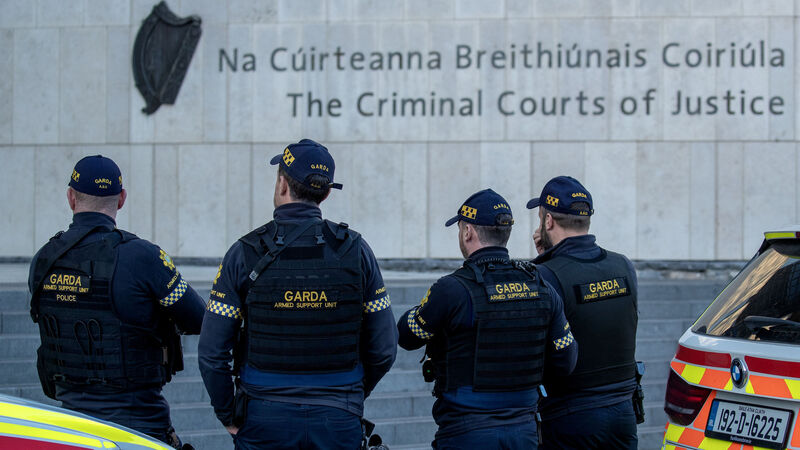Judges rule to listen to 10 hours of Hutch and Dowdall conversation captured by gardaí

Members of the Garda Armed Support Unit on duty at the Special Criminal Court.
Judges at the Special Criminal Court have ruled that they will listen to 10 hours of conversations between murder accused Gerard 'The Monk' Hutch and ex-Sinn Féin Councillor Jonathan Dowdall that were captured by gardaí, despite Dowdall's bugged jeep having been outside of the State during the majority of the recordings.
Mr Hutch’s defence lawyer Brendan Grehan SC submitted on Thursday that their "core argument" would be that gardaí were aware that Dowdall's Toyota Land Cruiser was outside the jurisdiction for eight of the 10 hours of those recordings from March 7, 2016, and that the evidence harvested from that "illicit fruit" should be excluded from the trial.











